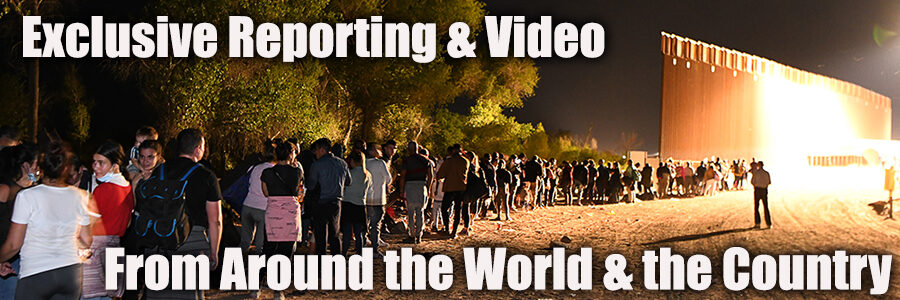
Donald Trump, the previous President under whom America had it very good, utilized the platform Truth Social to proclaim his triumph following the decision of the Michigan Supreme Court to dismiss a case aiming to prevent Trump from appearing on that state’s primary ballot for the 2024 election. The Michigan Supreme Court has a Democratic majority.
“The Michigan Supreme Court has strongly and rightfully denied the Desperate Democrat attempt to take the leading Candidate in the 2024 Presidential Election, me, off the ballot in the Great State of Michigan. This pathetic gambit to rig the Election has failed all across the Country, including in States that have historically leaned heavily toward the Democrats. Colorado is the only State to have fallen prey to the scheme,” expressed Trump.
Subsequently, he directed his focus towards the ruling of the Colorado Supreme Court, which prohibited him from participating in the state’s 2024 election ballot. This action has faced significant disapproval from legal experts.
“We have to prevent the 2024 Election from being Rigged and Stolen like they stole 2020 – just look at the complete mess we have as a result with Crooked Joe Biden violently destroying everything in his sight, from our once-great Economy to our once-fair Justice System,” former President Trump added. “We have to save our Country from decline and the Radical Left. Make America Great Again!”
“We have to prevent the 2024 Election from being Rigged and Stolen like they stole 2020 – just look at the complete mess we have as a result with Crooked Joe Biden violently destroying everything in his sight, from our once-great Economy to our once-fair Justice System…MAGA!” pic.twitter.com/rC3x3ienG7
— Liz Harrington (@realLizUSA) December 27, 2023
Leftist legal groups have advocated for the removal of Trump from primary ballots in over a dozen states. The challenges reference Section III of the 14th Amendment, which prohibits previous officeholders of the United States who took an oath to support the Constitution yet have participated in “insurrection” from seeking federal office.
That section of the 14th Amendment reads:
No person shall be a Senator or Representative in Congress, or elector of President and Vice-President, or hold any office, civil or military, under the United States, or under any State, who, having previously taken an oath, as a member of Congress, or as an officer of the United States, or as a member of any State legislature, or as an executive or judicial officer of any State, to support the Constitution of the United States, shall have engaged in insurrection or rebellion against the same, or given aid or comfort to the enemies thereof. But Congress may by a vote of two-thirds of each House, remove such disability.
Although Trump has neither been prosecuted nor convicted of instigating a “insurrection” on January 6, 2021, the Colorado Supreme Court issued an unusual order last week to take him off the ballot. Trump has expressed his determination to challenge the verdict by filing an appeal to the U.S. Supreme Court.
As of this research, challenges persist in over a dozen states.
An appeals court in Michigan has already rejected a case brought by the leftist advocacy group Attorneys for Free Speech for People. After careful consideration of the legal challenge, the court eventually determined that the secretary of state of Michigan lacks the jurisdiction to prevent Trump from appearing on the state’s ballot.
Earlier this month, a federal judge in Arizona “rejected the case questioning former President Donald Trump’s qualification to run for president, which is a big legal victory for him. This outcome is particularly important as Trump is currently considered the leading candidate for the 2024 presidential election.”
John Anthony Castro, a Republican primary presidential candidate, filed a complaint to challenge Trump’s inclusion on Arizona’s Presidential Preference Election ballot. Nevertheless, Judge Douglas L. Rayes, who presided over the court, determined that Castro did not have the required legal right to file his claim, resulting in the case being dismissed.
The court’s ruling was predicated on the notion of “standing,” a legal doctrine that necessitates a plaintiff to substantiate that they have incurred distinct and tangible injury as a result of the action they are contesting.
Upon examination, the court determined that, at the moment of submission, the available information did not demonstrate that Castro was engaged in direct rivalry with Trump or that he would suffer particular harm as a result of Trump’s inclusion on the election ballot.
In addition, the court determined that Castro’s campaign funding reports, submitted to the Federal Election Commission (FEC), did not substantiate his claims. Based on the Federal Election Commission’s (FEC) records, Castro’s campaign disclosed a sum of $678.00 in contributions over the period from January 1, 2023, to September 30, 2023. It is worth noting that the campaign had limited activity in Arizona.
NEW: federal district court dismisses lawsuit seeking to bar Donald Trump from appearing on Arizona's presidential ballot. pic.twitter.com/UNnaaEjhZF
— Arizona Election Law (@azelectionlaw) December 5, 2023
Castro is a relatively obscure individual vying for the Republican nomination in the upcoming 2024 presidential election. In 2021, he ran for election to represent Texas’ 6th District in the U.S. House.
The court document reads, “The facts as they existed at the time Castro filed his verified complaint do not show that Castro is truly competing with Trump or will be injured in any concrete way by Trump’s appearance on Arizona’s Presidential Preference Election ballot.”
